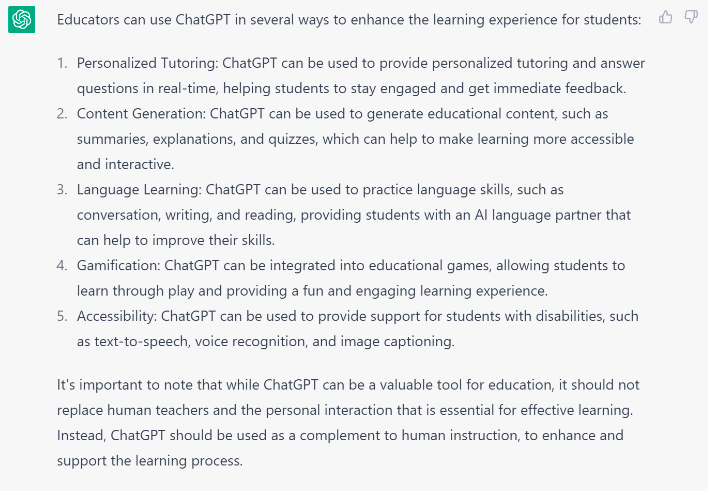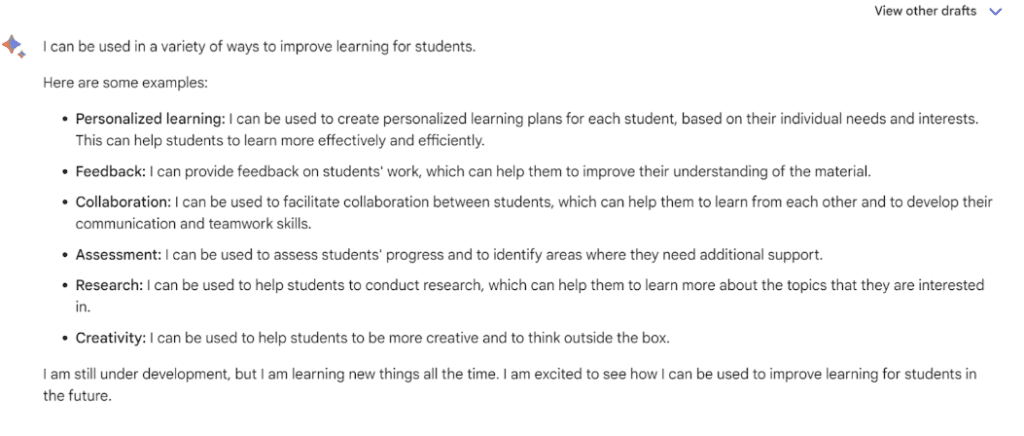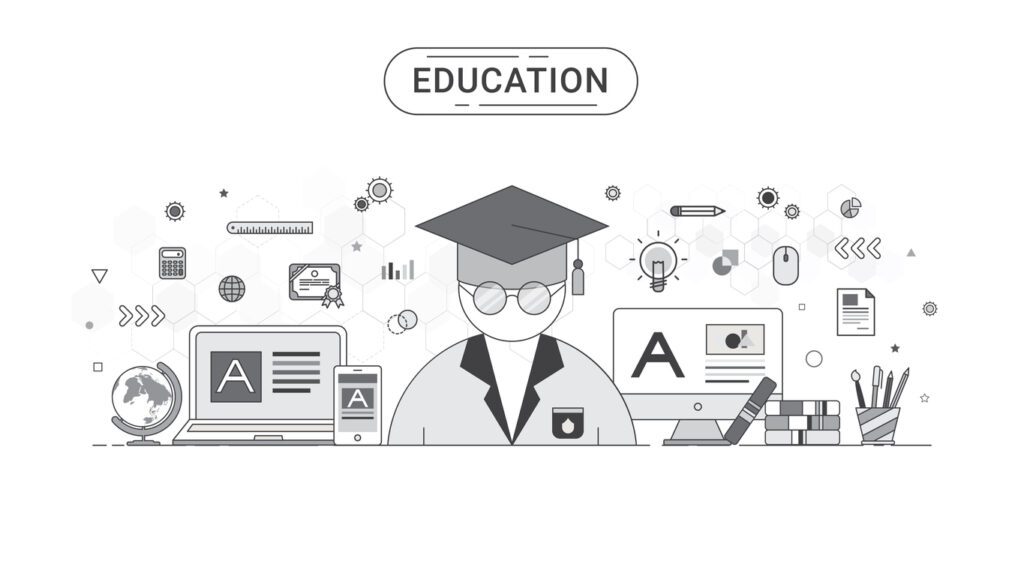I have always been very intrigued by new innovative technologies. In my work with Educational MakerSpaces, I was influenced by the work out of MIT around FabLabs and machine learning. “FabLabs” is for “fabrication laboratory,” an idea created by Professor Neil Gershenfeld at MIT in 2001. The goal was to make an accessible and affordable making space. This idea was eventually replicated across the world. Machine learning, an essential part of this work, is behind chatbots and predictive text, language translation apps, the shows Netflix suggests to you, and how your social media feeds are presented. It powers autonomous vehicles and machines that can diagnose medical conditions based on images(1).
Klaus Schwab, the founder of the World Economic Forum, calls this time in history the Fourth Industrial Revolution (4IR) which marks the beginning of the imagination age.(2) We have become somewhat numb to the exponential growth of these technologies. As of this writing, ChatGPT has gone through several other iterations bypassing its former achievements. However, as this relates to education, what are the ramifications?
In my experience in education, the educational practice we call pedagogy is slow to adapt and resistant to change. It took a pandemic to facilitate broad adoption of one-to-one technology for all students, virtual interactions with Zoom or Google Meet, and mass digitization of the classroom. All of these with consequences good and bad but necessitated by an inescapable need. It is not my intent to address these consequences but to look forward to a technology that will be as inescapable for educators; Artificial Intelligence(AI).
I decided to have a “conversation” with two of the most prominent chatbots about education and artificial intelligence. Below is my conversation with ChatGPT and Bard. Each chatbot responded to my following four questions.
- What are the top new technologies that will change life for mankind?
- How will these technologies impact education?
- What is the greatest risk of AI in education?
- How should educators use ChatGPT/Bard to improve learning for students?
I suggest as you read the screen-captured responses that you note the differences and similarities in the responses. I also recommend after you finish that you have your own conversation with these chatbots and think about:
- What skills do students need to navigate these interactions with success?
- How can you innovate your practices so that these chatbots become a learning resource rather than a source of answers?
There is a seed from history that I would like to plant. A strategy of thoughtful questioning to examine ideas to determine validity. This strategy implemented long ago by Socrates might be worth revisiting by both the educators and the students they serve.
What are the top new technologies that will change life for mankind?
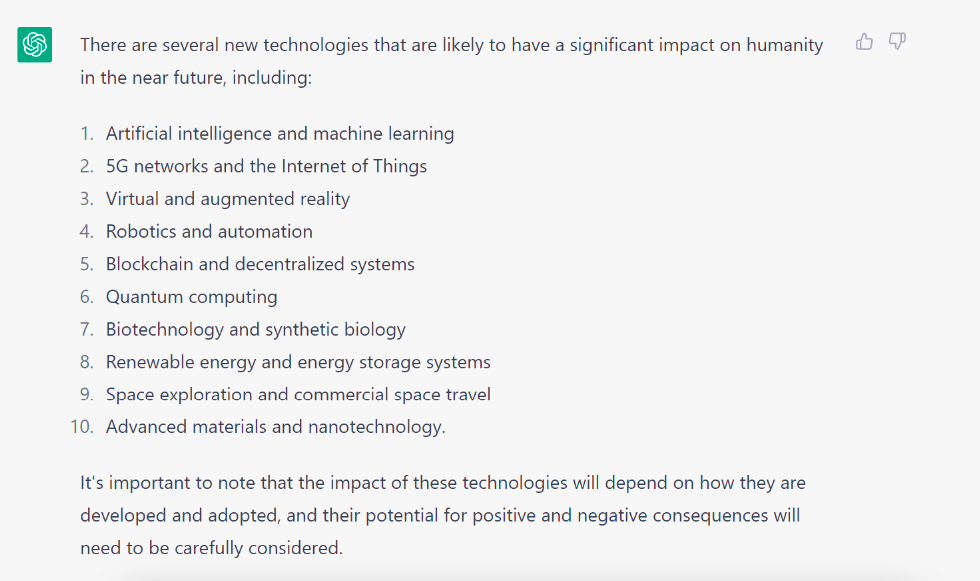
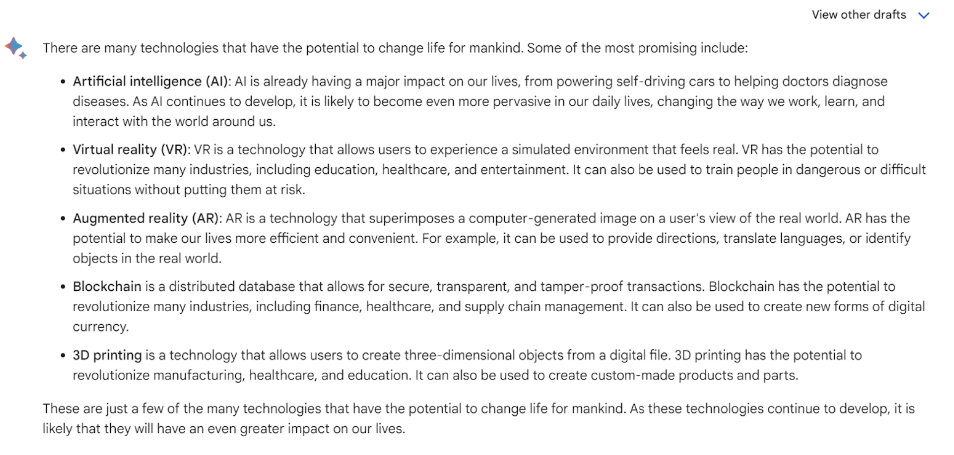
How will these technologies impact education?
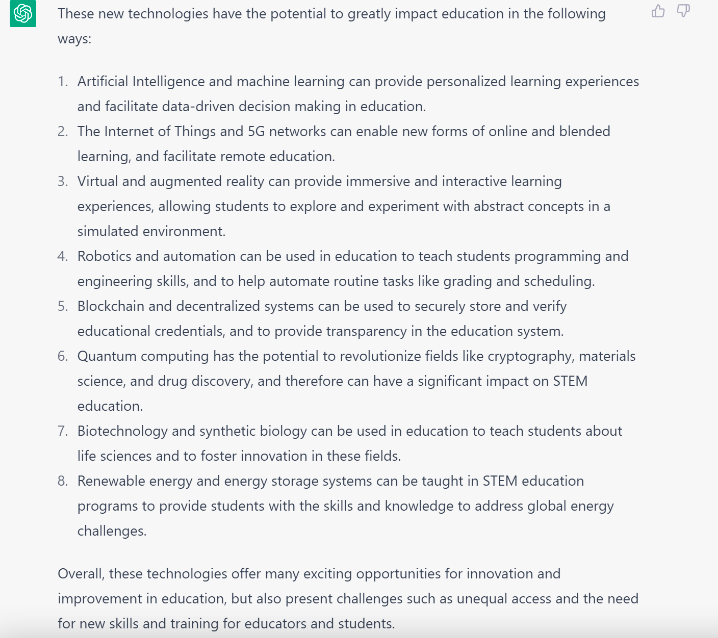
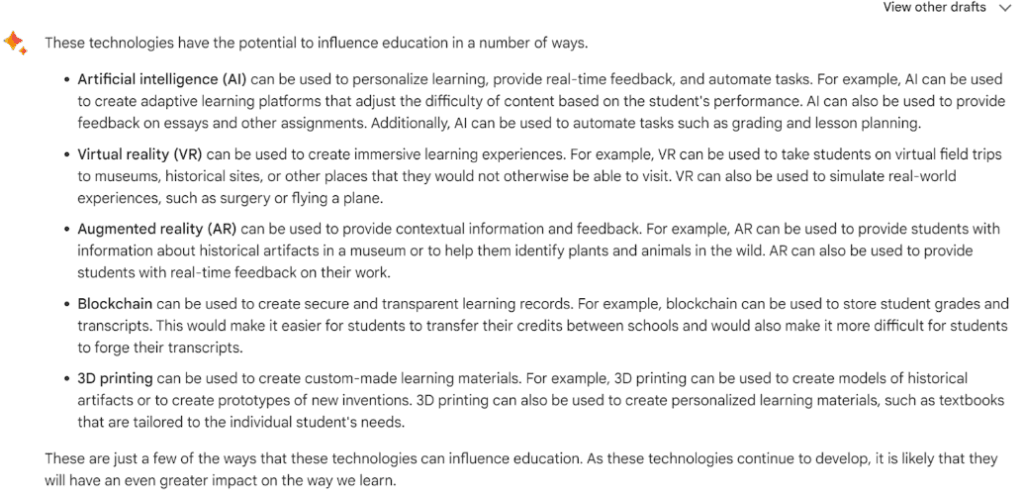
What is the greatest risk of AI in education?
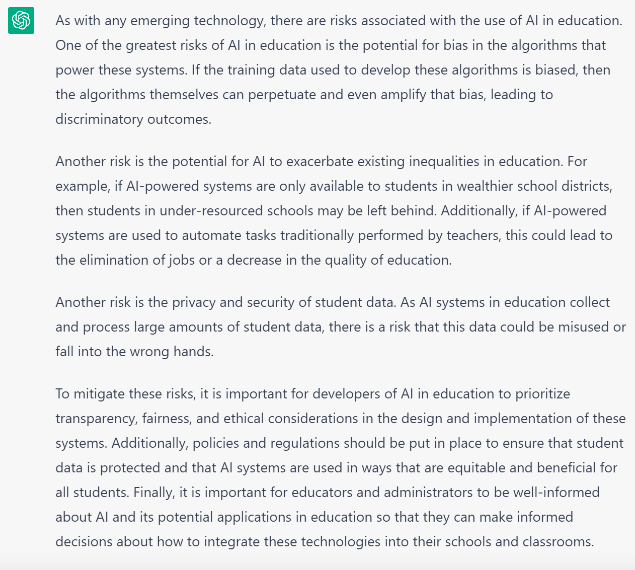
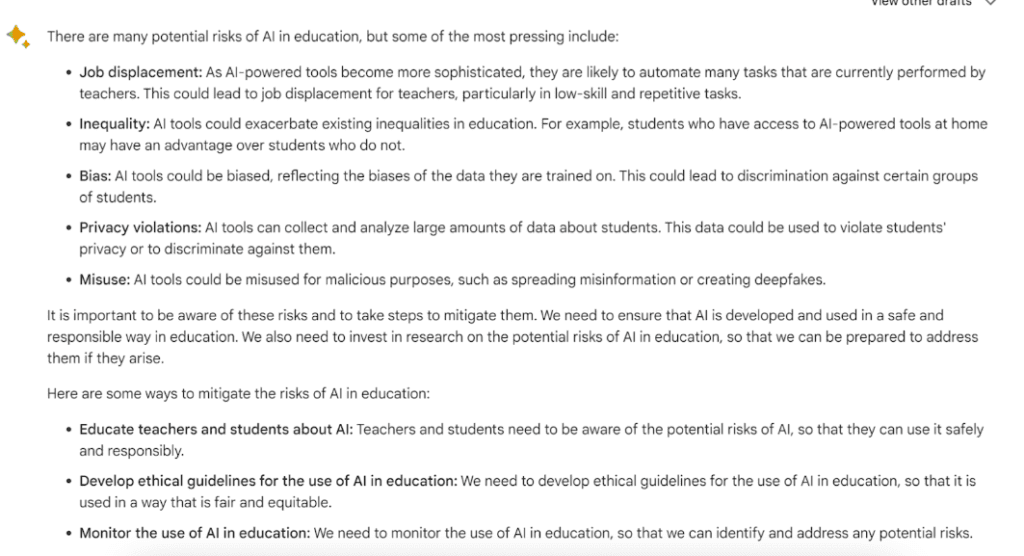
How should educators use ChatGPT/Bard to improve learning for students?
